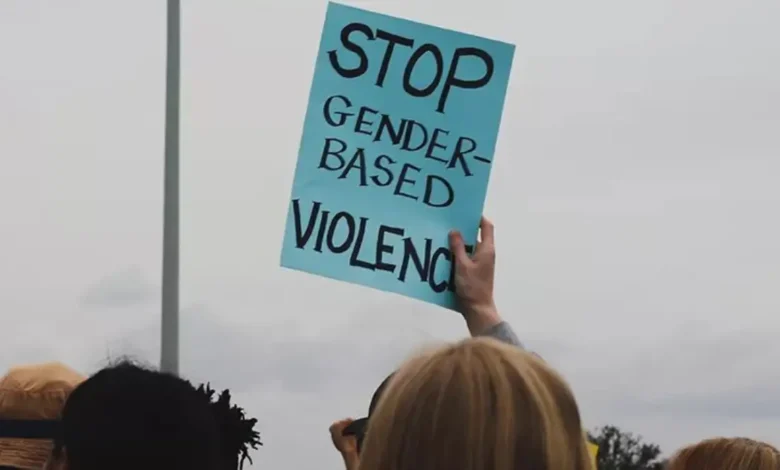Police Step Up Fight Against Gender-Based Violence Amid Ongoing Challenges

Gender-based violence (GBV) continues to plague South Africa, remaining a severe national crisis that devastates individuals, families, and communities. Despite the persistent and alarming statistics, the South African Police Service (SAPS) affirms its commitment to intensifying efforts against this widespread scourge. Authorities implement new strategies and strengthen existing units, yet significant challenges persist within the justice system, making the fight against GBV a complex and arduous war.
ALSO READ: Over 100 School Sexual Misconduct Cases Under Investigation, GBV Groups Demand Urgent Action
The Enduring Scourge of GBV in South Africa
South Africa faces an unacceptably high prevalence of gender-based violence. Recent crime statistics reveal a grim reality, with rape and other sexual offenses remaining a significant concern. Police Minister Senzo Mchunu acknowledged both increases and decreases in various sexual offense categories in the fourth quarter of 2024/2025 crime statistics, highlighting the fluctuating and pervasive nature of the problem. While some provinces saw a decrease in rape, Gauteng and KwaZulu-Natal still contributed significantly to the national total. Critics, including DA MP Dianne Kohler Barnard, contend that the country is far from winning the war on GBV, pointing to the traumatic impact on victims and their families.
The impact of GBV extends far beyond the immediate physical harm. Survivors often endure profound psychological trauma, societal stigma, and re-victimisation within the very systems designed to protect them. This deep-seated crisis reflects underlying societal issues, including patriarchal norms, socio-economic inequalities, and high unemployment rates, which exacerbate vulnerability and perpetuate cycles of abuse. Addressing GBV requires a holistic approach that extends beyond law enforcement to encompass societal transformation.
SAPS Efforts to Combat GBV
Despite the overwhelming scale of the challenge, the SAPS has introduced and strengthened several initiatives to combat gender-based violence and femicide (GBVF), demonstrating a heightened focus on this national priority crime.
A cornerstone of the police’s strategy is the Family Violence, Child Protection, and Sexual Offences (FCS) units. These specialized units, comprising 176 branches across the country under the Detectives division, focus on the effective prevention, investigation, and prosecution of FCS-related crimes. Their mandate includes sexual crimes, person-directed crimes (like assault and murder), illegal removal of persons, and electronic media-facilitated crimes such as child pornography. The FCS units employ forensic social workers who assist detectives with psychosocial and risk assessments, providing crucial support to traumatized victims. Between April 2023 and September 2024, the FCS unit achieved notable successes, conducting over 16,600 suspect raids, arresting more than 29,100 perpetrators, and securing numerous convictions, including hundreds of life sentences.
Furthermore, the SAPS has established dedicated GBV desks at every police station, aiming to ensure that GBV cases receive priority attention and rapid response. While progress is ongoing, with 134 such desks already operational in GBVF hotspots, the goal remains to establish them across all stations nationwide. The police also provide Victim Friendly Rooms (VFRs). There are currently over 1,100 VFRs at police facilities, offering a private, non-threatening environment for victims of intimate violence to provide statements, minimizing secondary trauma.
Enduring Challenges Facing Law Enforcement
Despite these stepped-up efforts, police face significant systemic and operational challenges in effectively combating GBV. Critics often highlight a concerning lack of confidence in the police and justice system among survivors. Reports indicate issues such as police incompetence, delays in investigations, case backlogs (especially for DNA analysis), and low conviction rates. This can deter victims from reporting abuse or lead to case withdrawals, as they lose faith in the system’s ability to deliver justice.
One of the persistent criticisms points to a lack of standardization across provinces regarding resources, training, and staffing within GBV-response units. Victim support centers, while vital, sometimes face understaffing and inadequate basic facilities. Furthermore, patriarchal attitudes among some police officers can lead to secondary victimization, making the reporting process even more traumatic for survivors. The very definition of “gender-based violence” as a distinct crime within police data collection also presents a challenge, making it difficult to fully track and categorize the scope of the problem.
Towards a More Effective Response
Overcoming these challenges requires a multi-pronged approach that extends beyond increased arrests and includes comprehensive reforms across the entire justice value chain.
Enhanced Training and Professionalization: Implementing mandatory, ongoing, survivor-centred training for all police officers, particularly those at GBV desks and within FCS units, is crucial. This training must address not only investigative techniques but also empathy, trauma-informed care, and gender sensitivity. Experts also call for a broader professionalization of the SAPS, recruiting highly skilled personnel who can effectively utilize technology, analyze data, and conduct complex investigations.
Strengthening Inter-Agency Collaboration: The fight against GBV cannot be won by the police alone. Effective prosecution requires seamless coordination between the SAPS, the National Prosecuting Authority (NPA), and the Department of Justice and Constitutional Development. Regular meetings to address bottlenecks in case progression, improve evidence management (including rape kits), and expedite DNA analysis become critical.
Legislative and Policy Implementation: The South African government has introduced significant legislative reforms, including the National Council on Gender-Based Violence and Femicide Act and amendments to various criminal and domestic violence laws.
Community Engagement and Prevention: Empowering communities to challenge patriarchal norms, promote gender equality, and report abuse is fundamental. Public awareness campaigns, community education programs, and initiatives that promote women’s economic independence all contribute to long-term prevention. Digital tools, such as the Bright Sky SA app, also help victims identify abuse and access support services.
A Shared Responsibility for Safety
The police’s efforts to combat gender-based violence are undeniably critical, and steps taken through specialized units and legislative reforms demonstrate commitment. A truly effective fight against gender-based violence demands relentless dedication, systemic reform, inter-agency cooperation, and active community participation to ensure that every individual in South Africa can live free from fear and abuse.



